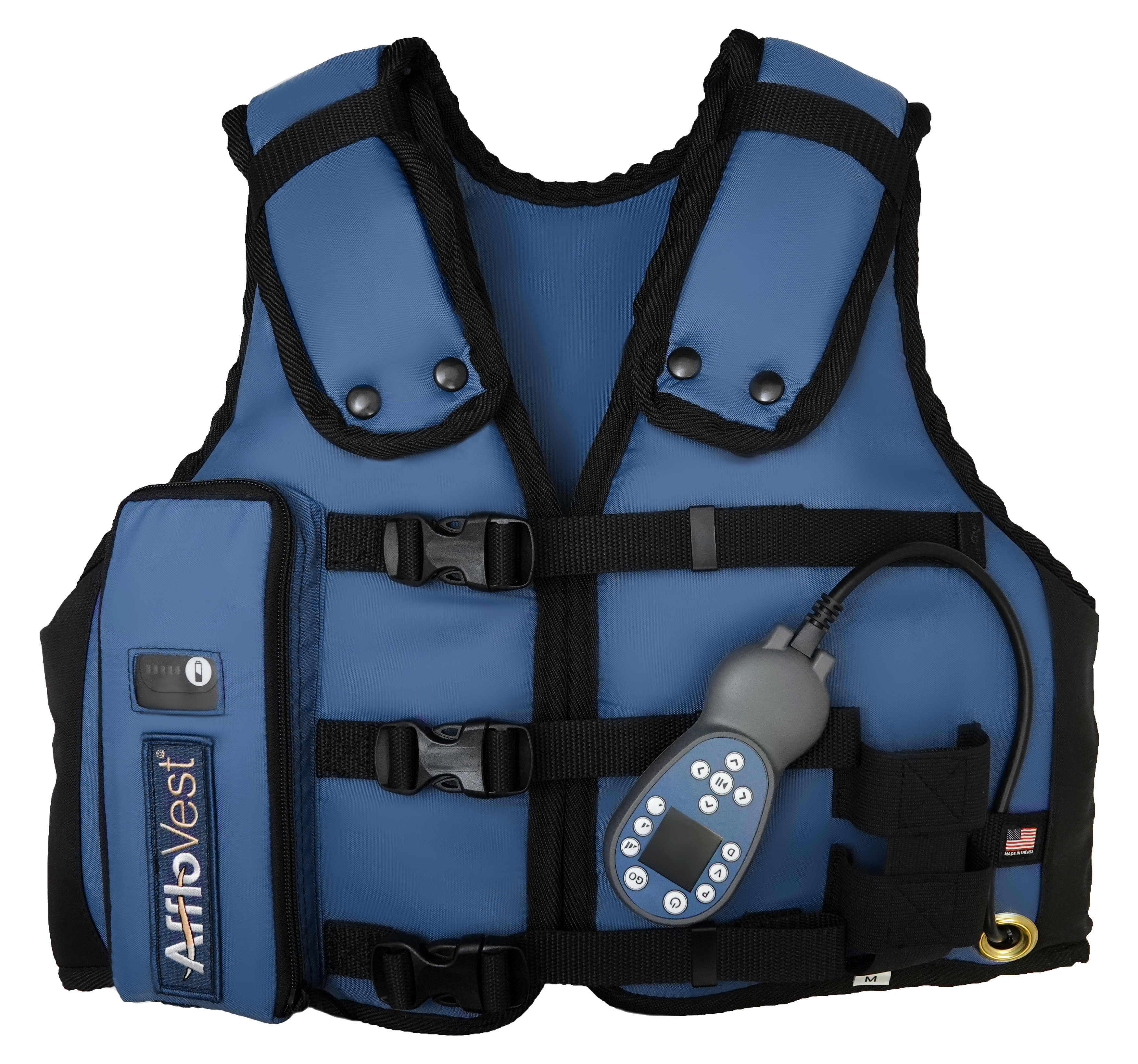Neuromuscular Disorders
NEUROMUSCULAR DISORDERS
Respiratory health is crucial for children and adults with neuromuscular disorders. Severely weakened respiratory muscles, like the diaphragm or abdominals, most commonly occur in patients with amyotrophic lateral sclerosis (ALS), spinal muscle atrophy (SMA) type 1, muscular dystrophy (MD) and other neuromuscular disorders. Muscle weakness and a weak cough can make it difficult to get mucus out of the lungs, leading to airway mucus plugging and chest congestion.
DISORDERS OF THE DIAPHRAGM
The diaphragm may be affected by disorders and abnormalities which can happen from trauma, injury, or illness.1 When the diaphragm is impaired, breathing can become labored and difficult.1 While diaphragm issues are often associated with neuromuscular problems, infections and diseases that cause lung hyperinflation may also affect the diaphragm, making it less effective during breathing.1 Your prescriber will likely order a chest x-ray of your lungs to see if they suspect your diaphragm is flattened.2
BENEFITS OF AIRWAY CLEARANCE
AffloVest can be an effective therapy for individuals with neuromuscular disorders. AffloVest was designed with ease-of-use in mind for patients, families and caregivers, to deliver airway clearance therapy that can be managed at home or in the hospital. With no bulky tubes and heavy generators, the AffloVest can be utilized in any postural position (i.e. laying down, standing, sitting, inclined, reclined, etc.) to help improve the quality of life for neuromuscular patients.

1. Ottenheijm, C.A., Heunks, L.M. & Dekhuijzen, R.P. Diaphragm adaptations in patients with COPD. Respir Res 9, 12 (2008).
2. Sarkar M, Bhardwaz R, Madabhavi I, Modi M. Physical signs in patients with chronic obstructive pulmonary disease. Lung India. 2019;36(1):38–47.